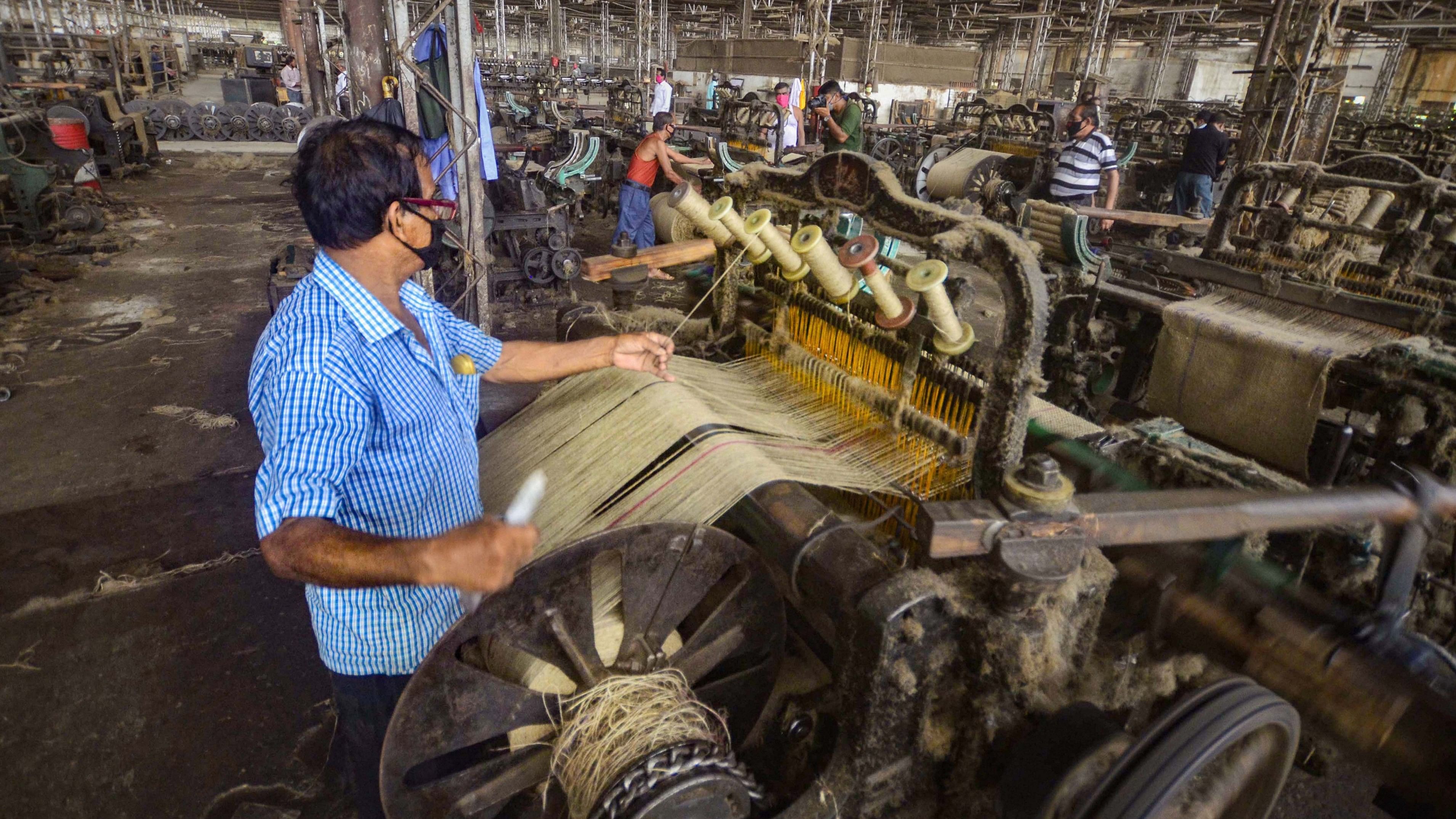
Jute Factory. Representative image
Credit: PTI Photo
Kolkata: The Indian Jute Mills Association (IJMA) has expressed serious concerns about deteriorating condition of the country's jute industry.
In a recent letter to the Union Textile Ministry, the association cited increased imports, fluctuating government sector demand, and rising operational costs as significant challenges.
The association has requested a probe into the countervailing subsidies (CVD) provided by the Bangladeshi government and a review of the anti-dumping duty (ADD) on jute products from Bangladesh and Nepal.
Despite the existing anti-dumping duties, Bangladesh and Nepal still hold a substantial 55 per cent share of the non-government jute goods market, which is valued at Rs 3,500 crore. This situation has further exacerbated the industry's difficulties, according to the letter.
The letter stated that the association has filed an application for an interim review of the ADD and also urged the ministry to initiate anti-subsidy investigations.
IJMA's letter pointed out that contrary to reports, the Bangladeshi government has increased subsidies on diversified jute products, allowing producers in the neighbouring country to claim higher export subsidies.
"These subsidies are in direct violation of Annex VII of the Agreement on Subsidies and Countervailing Measures (ASCM), which mandates that Least Developed Countries (LDCs) like Bangladesh phase out export subsidies for products that have achieved export competitiveness. Bangladesh has maintained export competitiveness in jute products for over two years, warranting a phased removal of these subsidies," IJMA said in its complaint.
The association warned that these subsidies not only increase the financial burden on the Bangladeshi government but also severely damage the Indian jute industry.
IJMA emphasised that invoking anti-subsidy measures would benefit both countries by creating a level playing field for the Indian industry while alleviating the subsidy burden on the Bangladeshi government, especially as the neighbouring country prepares to graduate from the LDC list.